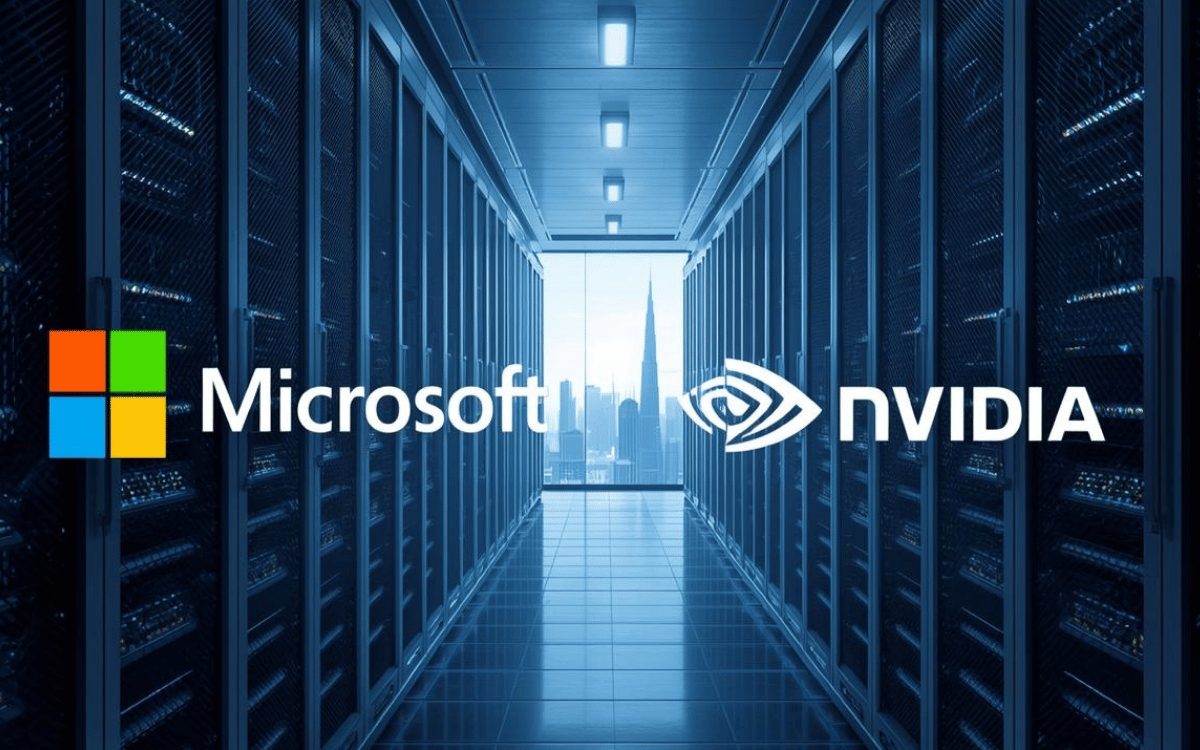In a major strategic move, Microsoft has announced plans to invest more than $15.2 billion into the United Arab Emirates between now and 2029 — and the deal comes with a major tech twist: approval from the U.S. for advanced chip exports from Nvidia to support Microsoft’s AI-powered data-centre expansion in the UAE. Reuters
What’s Behind the Investment
Microsoft’s Vice-Chair and President Brad Smith spoke with Reuters on the sidelines of the ADIPEC energy conference in Abu Dhabi, highlighting that the lion’s share of the investment will go into the expansion of AI data-centres across the region. Reuters The chips approved for export include Nvidia’s A100, H100, H200 and GB300-series GPUs — hardware that’s central to building out large-scale AI operations. Reuters
Why the Deal Matters
This is more than just a capital push. The UAE has positioned itself as a rising global hub for artificial intelligence, and Microsoft’s investment — paired with chip export licences — shows how geopolitics, cloud infrastructure and AI development are converging:
- Microsoft gains scale fast. The company will tap UAE data-centre capacity without building entirely new campuses.
- UAE boosts its positioning. Access to advanced U.S. AI chips and cloud infrastructure helps the Emirates stake a claim in the global AI race.
- Nvidia benefits indirectly. With licences approved to export its powerful GPUs, its ecosystem spreads further — especially in regions outside the U.S.
The Bigger Technology & Regulatory Picture
The move comes amid a broader wave of U.S. export-licence approvals that are reshaping how AI hardware is distributed globally. By lining up licensing for tens of thousands of Nvidia chips, Microsoft is effectively securing critical infrastructure for the next era of cloud and AI services. Reuters
Yet, the significance isn’t purely technological. The deal also intersects with national-security and export-control regimes, especially given Washington’s tightening of restrictions around advanced AI chips and certain foreign-access routes.
Risks & What to Watch
Despite the optimism, several layers of complexity remain:
- Execution risk. Rolling out massive data-centres based on exported chips requires flawless logistics, timelines, and energy supply — particularly in the UAE’s desert climate.
- Regulatory risks. Future export-control changes or geopolitical shifts could pose hurdles.
- Competitive tension. As cloud and AI expansion gains global scope, rivalry among major players — such as Azure, AWS and Google Cloud — will intensify.
Final Takeaway
This $15 billion-plus wager by Microsoft underscores how critical infrastructure, geography and global strategy have become for artificial intelligence. The UAE emerges as a strategic node. Nvidia’s chips remain at the heart of modern AI systems. For Microsoft, the deal isn’t just about investing in one region — it’s about securing a seat at the front of the global AI expansion table.
